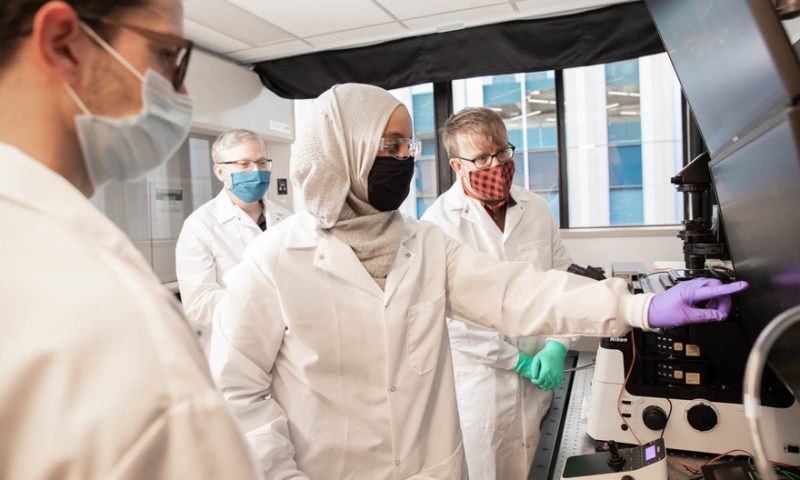The condensates space is where it’s at: With an $81 million financing, Faze Medicines is the third company in as many months to score venture dollars in pursuit of these targets. The capital will bankroll preclinical work in a pair of neurodegenerative diseases as well as support research in other areas like cancer, virology and immunology.
Biomolecular condensates are membraneless organelles made up of molecules such as proteins and nucleic acids that perform various jobs in the cell. Cary Pfeffer, M.D., Faze’s interim CEO, likens cells to office buildings and condensates to the meetings that happen in them.
“On any given day, there are different meetings going on—some are big meetings, some are small meetings, and they all need to have the right people in them or they can’t get the right stuff done,” said Pfeffer, also a partner at Third Rock Ventures. “People come and go all day long in meetings, and that’s kind of the way to think about condensates.”
The same way a person can disrupt and derail a meeting, a mutated protein in condensate can lead to disease.
“We need to figure out the most important contributors in a condensate. Those contributors will become our targets for drug discovery,” Rachel Meyers, Ph.D., chief scientific officer of Faze, said. The company hopes to drug those contributors directly, or to target processes that change their behavior.
Third Rock led the series A round, with Novartis Venture Fund, Eli Lilly, AbbVie Ventures, Invus, Catalio Capital Management, Casdin Capital and Alexandria Venture Investments chipping in. The funds will propel preclinical work in amyotrophic lateral sclerosis and a muscle wasting disorder called myotonic dystrophy type 1 as well as research into other areas. Faze is starting with these diseases because they have clear genetic links.
“There are lots of directions one could go—where we will go and we will see the field go—but we really chose to hang our hat on human genetics as a functional driver of what diseases to go after,” Meyers said.
Beyond its first two programs, Faze is “actively looking at” cancer, virology, immunology and metabolic diseases, as well as other neurodegenerative diseases as potential new avenues, Pfeffer and Meyers said.
The company is about 12-strong at the moment, with outside consultants helping build the organization. If all goes to plan, it will build its team to reach 25 to 30 staffers by the end of 2021, Pfeffer said.
Faze’s series A comes soon after Nereid Therapeutics launched with $50 million from Apple Tree Partners and Dewpoint Therapeutics banked a $77 million series B; both Nereid and Dewpoint are also pursuing condensates. The former plans to develop treatments for neurodegenerative diseases, fibrosis and certain cancers, while the latter has inked deals with Merck to pursue programs in HIV and with Bayer to work on treatments for cardiovascular disease and women’s health.

